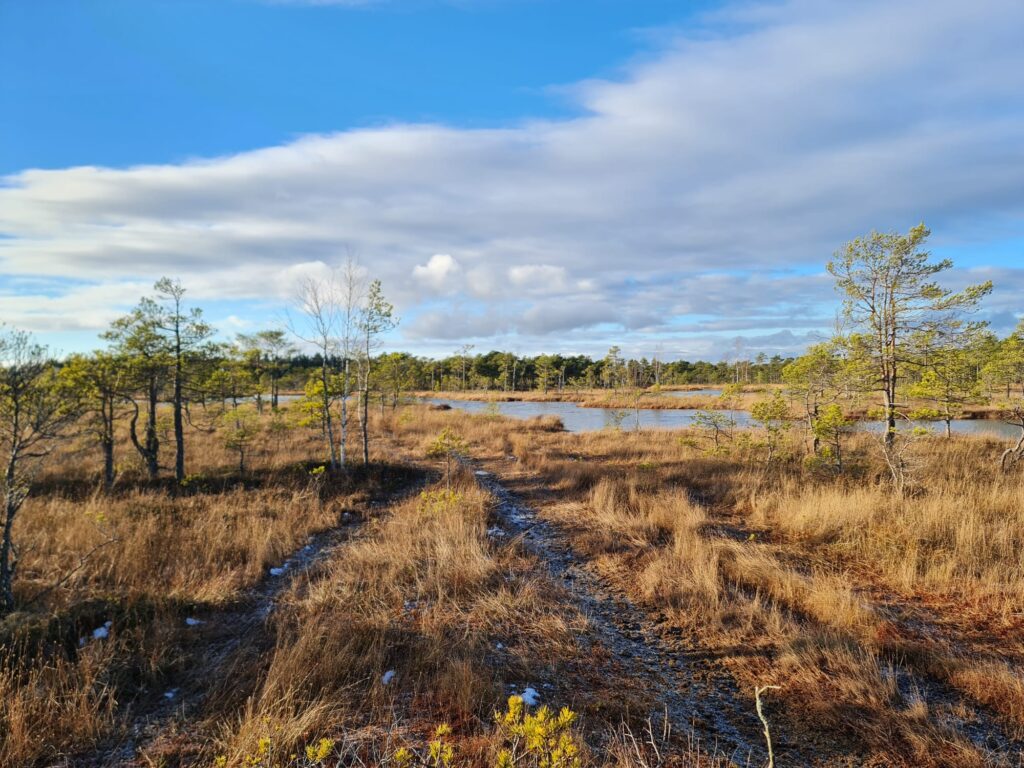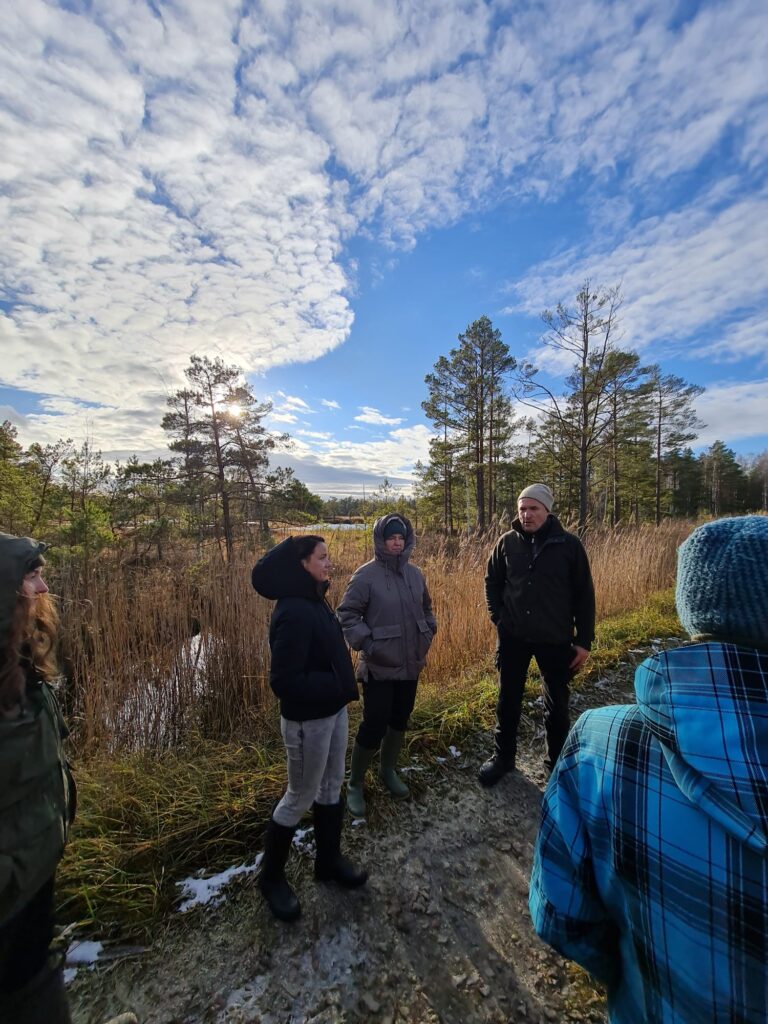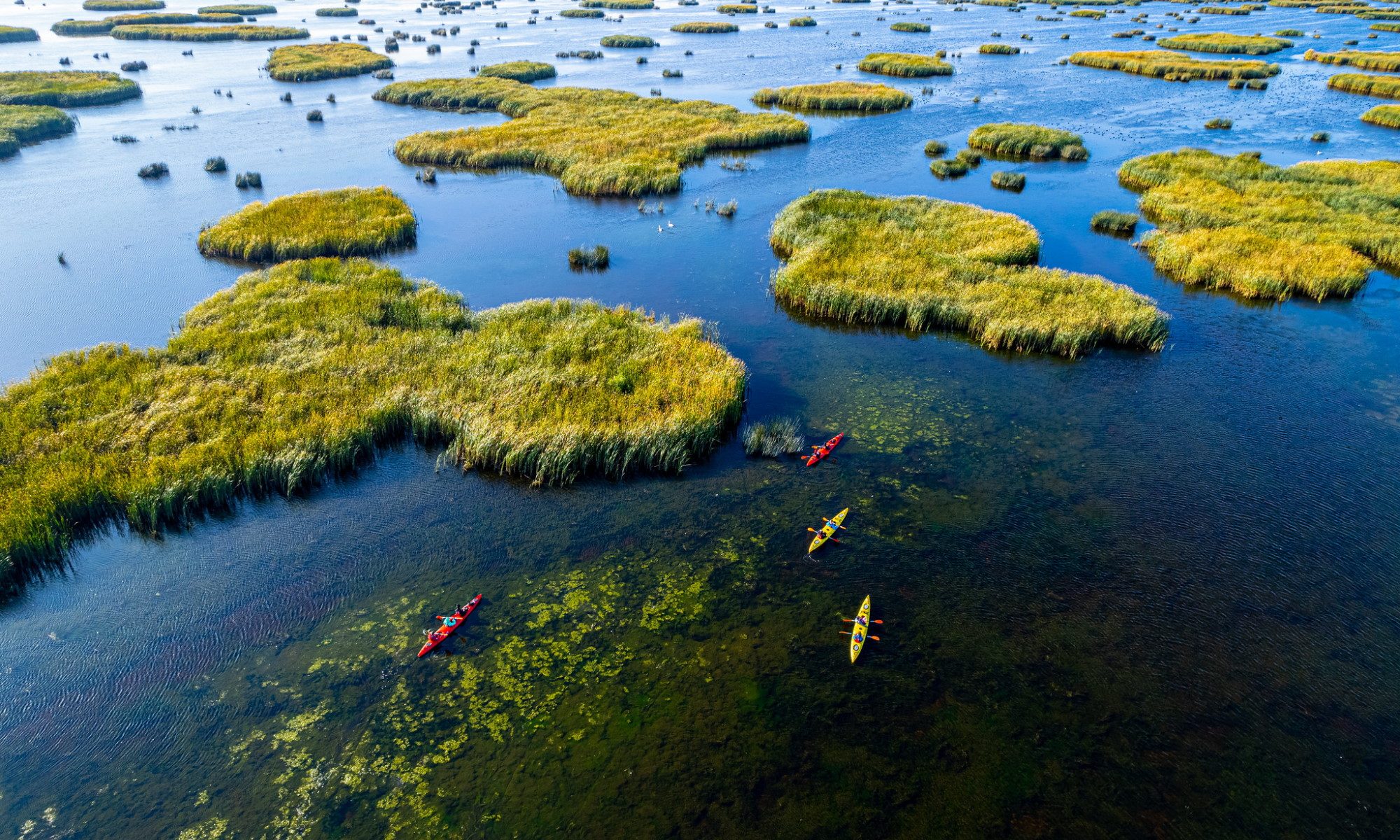On November 21, 2024, a seminar “Towards More Sustainable Nature Tourism” was held in Ķemeri National Park, focusing on the impact of tourism activities on various ecosystems and exploring ways to mitigate them.

The day began with an introductory lecture on Latvia’s specially protected nature areas and their management, as well as the structure of the Nature Conservation Agency (NCA). The lecture was held by Agnese Balandiņa, head of the Ķemeri National Park Nature Center of the NCA’s Pierīga Regional Administration (PRA).

This was followed by a brief overview by NCA PRA Senior State Environmental Inspector Ieva Pauniņa, who outlined the key aspects of bog hiking from NCA’s perspective, including the legal framework, risks, benefits, and challenges.

The session concluded with a presentation by Kristaps Kiziks from the Latvian Nature Tourism Association (www.purvubrideji.lv), who shared insights on bog hiking from the viewpoint of tourism service providers, highlighting benefits, challenges, collaboration opportunities, and potential for future development.
After the theoretical part, participants had the opportunity to explore nature firsthand with a visit to the Great Ķemeri Bog trails. This informative excursion provided valuable insights into the bog ecosystem, emphasizing key natural values and information that visitors should know to foster understanding and respect for biodiversity. During the visit, various topics were discussed, including the impact of different hiking practices on vegetation and birds, the quality of the offerings, and visitor satisfaction.




Additionally, the discussions addressed possible solutions for minimizing the impact of tourism, such as seasonal restrictions, zoning, and limitations during bird nesting periods, incorporating Estonia’s experience in these areas. This practical session offered participants an opportunity to exchange ideas and identify potential improvements in organizing sustainable nature tourism.


The #KnowNature project “Improving basic knowledge among tourism stakeholders in protected nature areas for more sustainable tourism in the Nordic-Baltic region” is implemented with the support of the EU ERASMUS + program.















